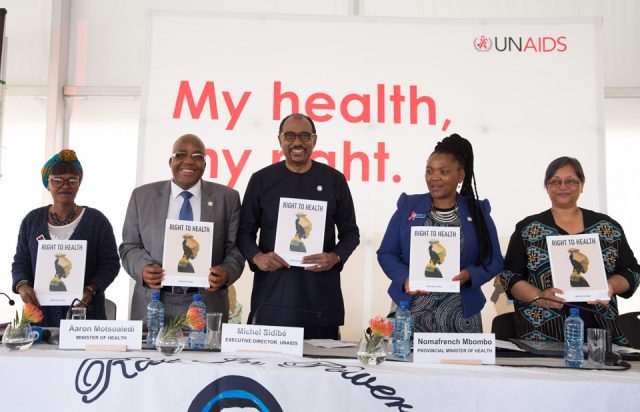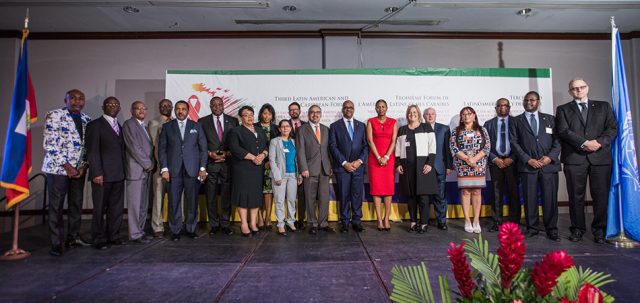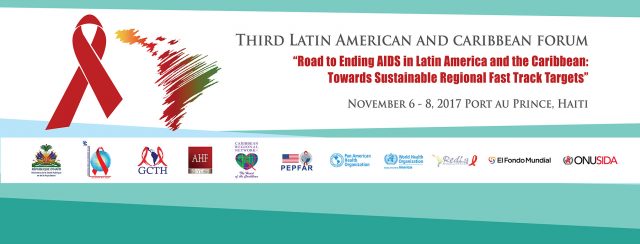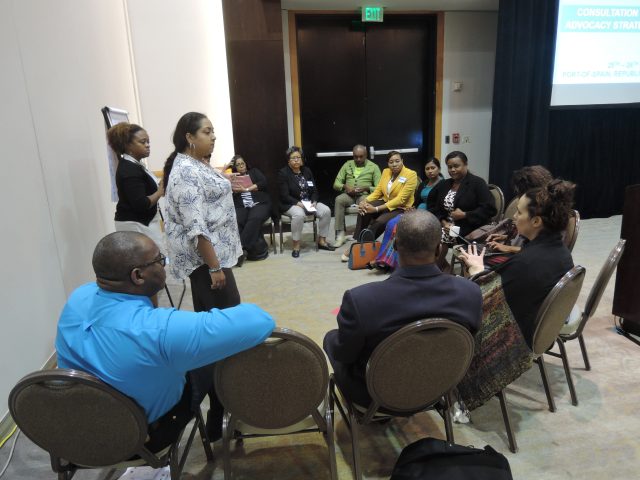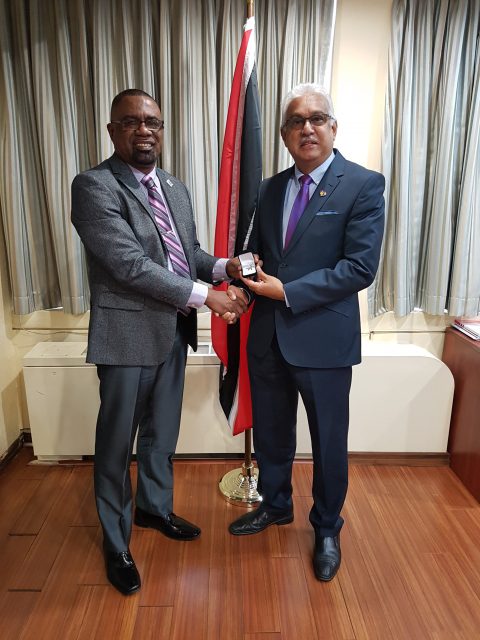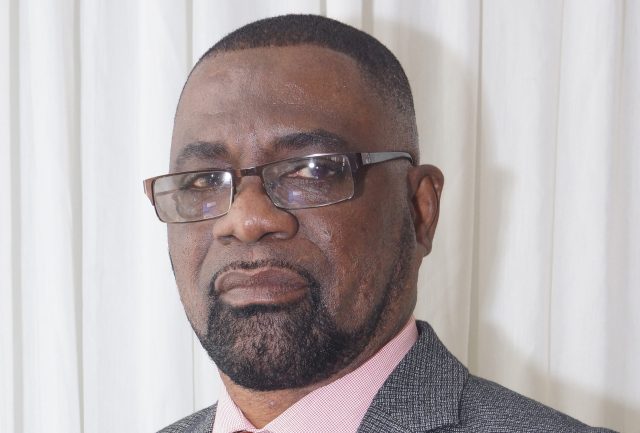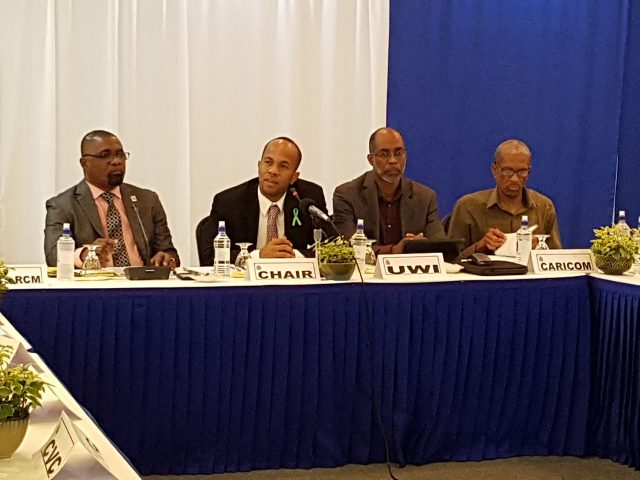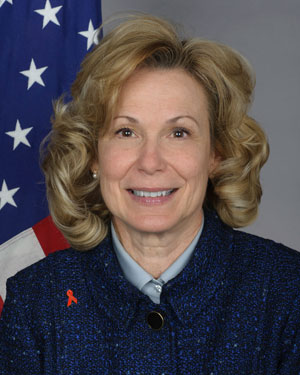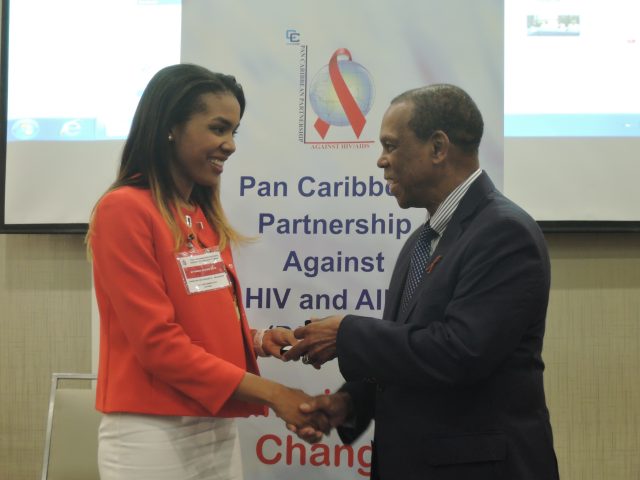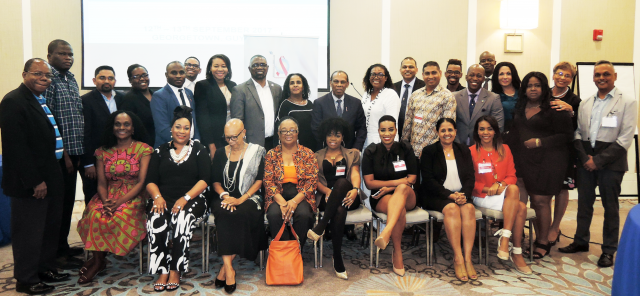CAPE TOWN/GENEVA, 20 November 2017—Remarkable progress is being made on HIV treatment. Ahead of World AIDS Day, UNAIDS has launched a new report showing that access to treatment has risen significantly. In 2000, just 685 000 people living with HIV had access to antiretroviral therapy. By June 2017, around 20.9 million people had access to the life-saving medicines. Such a dramatic scale-up could not have happened without the courage and determination of people living with HIV demanding and claiming their rights, backed up by steady, strong leadership and financial commitment.
“Many people do not remember that in 2000 there were only 90 people in South Africa on treatment,” said Michel Sidibé, Executive Director of UNAIDS, speaking in Khayelitsha, South Africa. “Today, South Africa has the biggest life-saving treatment programme in the world, with more than 4 million people on treatment. This is the kind of acceleration we need to encourage, sustain and replicate.”
The rise in the number of people on treatment is keeping more people living with HIV alive and well. Scientific research has also shown that a person living with HIV who is adhering to an effective regime of antiretroviral therapy is up to 97% less likely to transmit HIV. As treatment access has been scaled up for pregnant women living with HIV, new HIV infections among children have been rapidly reduced. From 2010 to 2016, new HIV infections among children were reduced by 56% in eastern and southern Africa, the region most affected by HIV, and by 47% globally.
“In 2001, the first person in Khayelitsha started HIV treatment. Today, there are almost 42 000 people on treatment here. The success of Khayelitsha’s treatment programme is a microcosm of the massive success of South Africa’s HIV programme,” said Aaron Motsoaledi, Minister of Health, South Africa.
The challenges now are to ensure that the 17.1 million people in need of treatment, including 919 000 children, can access the medicines and to put HIV prevention back at the top of public health programming, particularly in the countries in which new HIV infections are rising.
The new report from UNAIDS, Right to health, highlights that the people most marginalized in society and most affected by HIV are still facing major challenges in accessing the health and social services they urgently need. However, the report also gives innovative examples of how marginalized communities are responding.
In India, for example, a collective of sex workers has trained sex workers to work as nursing assistants, providing stigma-free health services to sex workers and the wider community. In Uganda, groups of grandmothers are weaving and selling traditional baskets to allow them to pay for schooling for the grandchildren in their care who lost their parents to AIDS.
In 2016, around 1.8 million people were newly infected with HIV, a 39% decrease from the 3 million who became newly infected at the peak of the epidemic in the late 1990s. In sub-Saharan Africa, new HIV infections have fallen by 48% since 2000.
However, new HIV infections are rising at a rapid pace in countries that have not expanded health and HIV services to the areas and the populations where they are most effective. In eastern Europe and central Asia, for example, new HIV infections have risen by 60% since 2010 and AIDS-related deaths by 27%.
References to the right to health are found in international and regional laws, treaties, United Nations declarations and national laws and constitutions across the globe. The right to health is defined in Article 12 of the International Covenant on Economic, Social and Cultural Rights as the right of everyone to the enjoyment of the highest attainable standard of physical and mental health. This includes the right of everyone, including people living with and affected by HIV, to the prevention and treatment of ill health, to make decisions about one’s own health and to be treated with respect and dignity and without discrimination.
UNAIDS’ Right to health report makes it clear that states have basic human rights obligations to respect, protect and fulfil the right to health.
The report gives voice to the communities most affected by HIV—including people living with HIV, sex workers, people who use drugs, gay men and other men who have sex with men and young people—on what the right to health means to them.
“Almost 20 years ago, the struggle was about access to treatment. Now, my struggle is not only about access but about ensuring that I have the support that I need to live a healthy and positive life. That is my right to health,” said Cindy Mguye, civil society representative.
Wherever the right to health is compromised, HIV spreads. In sub-Saharan Africa, for example, 67% of new HIV infections among young people are among young women and girls aged between 15 and 24 years. Studies have shown that a large number of young women and girls in the region contract HIV from older men, demonstrating multiple concerns about the ability of young women and girls to negotiate safer sex, stay in education and access age-appropriate sexual and reproductive health services.
Studies have also shown the difficulties health services face in reaching men with HIV testing and treatment, as well as broader health services, showing the challenge in encouraging men to exercise their right to health. In 2016, men in sub-Saharan Africa were 18% less likely to be accessing treatment and 8% more likely to die from AIDS-related illnesses than women.
The Right to health gives a clear demonstration of the challenges ahead in efforts to end the AIDS epidemic as a public health threat by 2030, as outlined in the 2016 United Nations Political Declaration on Ending AIDS.
The report underscores that to reduce new HIV infections and AIDS-related deaths and ensure access to essential health services, funding for health needs to increase. It gives examples of how to enhance funding, including increasing the share of health spending as a proportion of national economies, making savings through efficiencies and partnering with the private sector. The funding gap for HIV is estimated at US$ 7 billion by 2020.
UNAIDS has set an agenda to Fast-Track the response to HIV by 2020 towards ending the AIDS epidemic as a public health threat by 2030. It will continue to work closely with its Cosponsors and partners to ensure that everyone, everywhere can fulfil their right to health and can access the health and social services they need.
In 2016 (*June 2017) an estimated:
*20.9 million [18.4 million–21.7 million] people were accessing antiretroviral therapy (in June 2017)
36.7 million [30.8 million–42.9 million] people globally were living with HIV
1.8 million [1.6 million–2.1 million] people became newly infected with HIV
1.0 million [830 000–1.2 million] people died from AIDS-related illnesses
CLICK HERE to download the report from PANCAP.org

